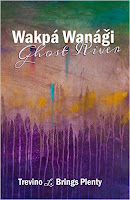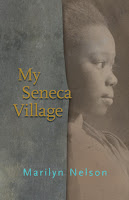RDB: Partly, yes. But then I would argue that unlike the scientific process, some of the failures [in the] poems lead to some unexpected places have value in a way that might not be true for science. Almost as if I find myself hypothesizing that one thing will be true when I begin to write a poem, and when I discover how wrong I am, it’s not disaster as much as an unexpected discovery. Especially if we’re thinking about a series of poems and how meaning accretes across them.
KB: When I read about your having trouble with the law at a young age and then ending up attending Yale Law School, it reminded me of a similarly public journey of another accomplished Black man: the scientist Carl Hart, who wrote in his book High Price about using and selling drugs as a teen and then becoming a research pharmacologist at Columbia University. It seems to me that both of these stories illustrate how we can become aware of a problem through our own experience and then develop a commitment to help others out of the same condition. Do you think that as a lawyer, your own history of resilience can inform the path of others who are struggling? How did you come to a place where you knew your life needed to be dedicated to helping others?
RDB: I’m not sure. There are always these similarities that are most noticeable when people have experienced similar life-changing type experiences. And so yes, for me, prison irrevocably changed the way I view things and the way I operate in the world. That, more than resilience, informs what I will ultimately do and I hope that the things I do will speak to others, maybe inform their path, maybe frame their decision to take a different path. Maybe part of this is me being reluctant, also, to point to some internal quality like resilience that lead me to a number of unexpected career choices and professional opportunities.
KB: You often tell the story that your life was changed when someone slid the anthology The Black Poets by Dudley Randall under the door of your cell when you were in prison. The ability of poetry to deeply affect prisoners has a long trajectory: Nelson Mandela spoke of reciting the inspiring "Invictus" poem by William Healy to fellow prisoners at Robben Island, and Aung San Suu Kyi wrote her own poetry about the political conditions in Burma. Closer to home, Jimmy Santiago Baca (who was one of our Featured Poets at the 2008 Split This Rock Festival) also tells of how he began writing poetry while in a maximum security prison in Arizona. What is it about poetry that is personally transforming for so many who are imprisoned?
RDB: I don’t know. I do want to believe that poetry is personally transforming to some, especially in prison. But honestly, I’m not as convinced that this is true as your question suggests that you are. Mandela, Suu Kyi, Santiago Baca – these are exceptional people. The push towards poetry is an important one, but I probably am more concerned [about] the transformative quality of prison, because those transformations are frequently far more sinister and last longer than what poetry does. All of which is to say it’s dangerous to think of this gift in a way that shifts the discussion away from the monstrosity that is prison.
KB: For a socially-engaged poet, there is a lived reality and yet there can be poetic license in our narratives, both personally and in terms of our writing. What do you think about the need for hard honesty in our work, as well as the use of softer symbolism that can convey hidden truths?
RDB: I’m not sure what you mean by this question. First, I desperately want to dispel the notion that there is a difference between the socially-engaged poet and the poet who isn’t. Recognizing that to be socially-engaged can mean many things, I’m reluctant to push on this category. Especially given [that] the category doesn’t invite us to think of the commitment people have to their community by doing volunteer work, by tutoring, by doing community building that is distinct from advocacy work. Second, poetry is imagination. It is craft and music. All of it is poetic license. And so I’m not sure that there is a distinction between hard honesty or soft symbolism. I mean, I’m not really sure at all I know or can recognize a distinction between the two. What I do know is that there are lines in poems, like Lucille Clifton’s line: "mine already is an afrikan name". Or Joseph Brodsky’s: "I have braved, for want of wild beasts, steel cages". There are lines that remain in my head and grow not only to mean something but to shape how I recall certain moments of my life.
KB: Is there a poem of yours that you wish more people were aware of?
RDB: Say a poem like "What We Know of Horses," this is a poem that I admire that I’ve written that I hope people will read. It’s a poem that I think is layered and builds as it develops and riffs off of other poets and ideas and histories. And it’s a personal poem, a love poem, a tragic poem. I don’t know. Beyond wanting people to be aware of any given poem, I would want to, in a moment of arrogance maybe, push people to think beyond labels for any of the poems that I’ve written. {Poem below.}
KB: The more that any of us read poetry, the more we can realize that there are writers from other eras who resonate with what we are attempting to do in our own work, even if the form is different. Are there any poets in the past who were representing their time the way you feel you are doing for your time? Or is there a poetic tradition that you feel you are keeping alive and hope to pass on?
RDB: There are many poets. Lucille Clifton, Etheridge Knight, Henry Dumas. There is Sonia Sanchez, Ethelbert Miller, Wanda Coleman. Brodsky. Gilbert. Both Christopher and Jack. But claiming a tradition – I’m a young writer and so that’s a more complicated question because you have to earn the right to be a part of a tradition. I’ve written a few poems, but don’t think that I’ve gotten to the point where I can honestly say I am keeping anything alive. I’m just happy to be in conversation with my peers and the world at this point.
What We Know Of Horses
by Reginald Dwayne Betts
1.
& when my brother says Swann Rd.
is the world, he ignores boarded
vacants, broken windows - this place’s
shattered glass? He tells me
“believe the world is tenement house,
a pocket full of stones, a world
of ghosts, & what’s left of ash &
smoke after each inhale.” I visit now
that a prison cell holds his world.
Dead men circle every block
we know, thread this world
with quotes from psalms, “the sorrows
of death embrace me,” “some trust
in chariots and some in horses.”
They embrace metaphor, disbelieve
gravity, breathe in a haunted world.
& what of my brother? Running
these streets, he was a horse –
graceful, destined to be
broken. Why admire horses?
2.
Why compare everything fast
& beautiful to horses?
My daddy’s generation had a saying
for men lost in the world,
it was true of my uncle, my cousin –
men strung out on horse,
chasing the dragon, shivering
with the memory of that stallion
gone postal in their veins –
called them lost in place,
with cities buried
inside them – horses
inside them stampeding.
My brother put his faith in horse,
& there is no map to find him now.
He tells me he inhales
the funk of men doing life
& knows he is in hell,
that he has dug his grave
amongst bricks that embrace him.
He - exile, with only rusted iron
& bricks bracing his two hundred pounds.
3.
Who admits this cage embraces
him? “History is written
on the back of the horse” broken
by the world. We all in prison now.
I stare at this man, my kin
ruined by embracing
night. Call this place a horse collar,
& watch how it cuts into skin,
how the leather embrace
s
all of our necks. Even as a visitor
behind plate glass I brace
myself for cuffs. This not Swann
Rd., this burden placed on me,
these memories of courtrooms
& the places where bodies were found.
& still, I want to stop & embrace
my brother, to hold him close
& pause to inhale the scent of prison,
to tell him what I smell, what I inhale,
is still the body of a man.
4.
How can a man inhale
so much violence & not change?
I light my Newport, inhale.
Think on how his voice has changed.
My man, now a feral horse
wearing kick chains: unable to sleep,
always on guard, inhaling
the air for prey, as if he is still
the predator, as if he can inhale
death & keep on living. Death
the elephant in this world.
I imagine the other men here, all
in a world filled with a casket’s aftermath.
How much grief can you inhale?
My brother tells me he prays
at night, he wants to leave this place.
But we know all his wild hours placed
him in this mural of blood.
His hunger placed him in C-block,
Cell 21. It suffocates
& nothing replaces time.
5.
“You okay in here?” I ask.
But he’s in a place
only he knows. When he walks
away he embraces
the kind of rage I fear. A man
killed a man near him, placed
on a gurney & rushed
down a sidewalk. Dead
in a place where no one gives
a fuck if you’re breathing.
To be a horse galloping away
is what I want for him,
he wants horse trundling through
his scarred veins. Prison
has taken the place of
freedom, even in his dreams.
6.
& I know, this is not a “world
where none is lonely.” & I know,
he is lost to the world,
& I know he believes this:
“I shut my eyes and all the world
is dead,” & I know that there is
still a strip, a place
that he believes is the world:
Swann Rd., where he can inhale
& be free. Sometimes his cuffs
are on my wrists & I embrace
the way they cut, as if I am the one
domesticated, a broken horse.
(From Bastards of the Reagan Era, printed by Four Way Books in 2015)
***
Kit Bonson is a Board member of Split This Rock, where she serves on the
 fundraising and Festival committees. Kit is is a neuroscientist in the DC area who has also been an activist for peace and justice and for women’s reproductive health for over 30 years. She is especially proud of initiating a collaboration between Split This Rock and the Abortion Care Network (a national group of independent providers and pro-choice supporters) for a Pro-choice Poetry Contest – now in its fifth year!
fundraising and Festival committees. Kit is is a neuroscientist in the DC area who has also been an activist for peace and justice and for women’s reproductive health for over 30 years. She is especially proud of initiating a collaboration between Split This Rock and the Abortion Care Network (a national group of independent providers and pro-choice supporters) for a Pro-choice Poetry Contest – now in its fifth year!







